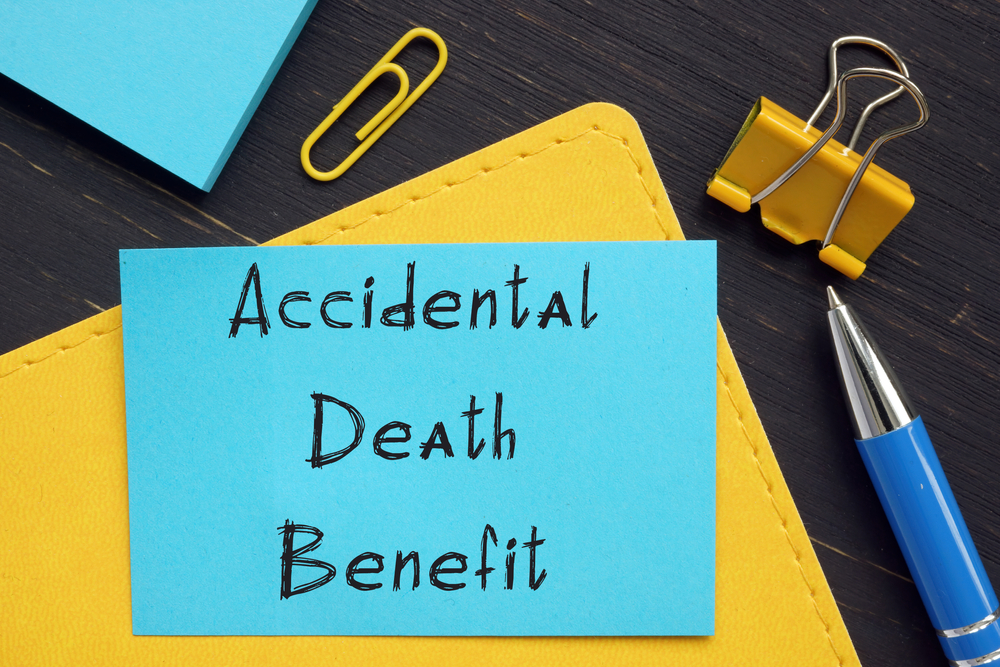The emotional weight can crush a family when a loved one dies due to someone else's negligence. Beyond the profound grief and sense of loss, there's a yearning for justice. This is where a wrongful death suit comes into play. However, one question looms: who has the right to file this kind of lawsuit?
To know your rights following a preventable death, consult a Sebastian personal injury attorney immediately.
Schedule A Consultation Today!
Understanding Wrongful Death

When we hear the term wrongful death, it's accompanied by a heavy sense of injustice. The very nature of such an event implies that someone's life was cut short due to another party's preventable actions or inactions. So, what does it truly mean legally, and how does it unfold?
A wrongful death claim, at its essence, is a pursuit of justice. It emerges from the legal understanding that when a person's death directly results from another's wrongful act, negligence, or even intentional misconduct, the deceased's family has the right to seek compensation. This is about seeking financial relief and holding the responsible parties accountable for their actions.
Consider, for example, car accidents. We often read about tragic crashes where a driver, under the influence of alcohol or drugs, causes an accident, leading to fatalities.
Here, the act of driving while impaired constitutes negligence. The deceased's family can bring forth a claim, highlighting that their loved one's death was preventable and directly resulted from the driver's irresponsible choices.
Then there's medical malpractice, another common scenario where wrongful death claims arise. Imagine a patient undergoing a surgical procedure. If the surgeon makes an egregious error, one that a reasonably skilled professional in that field will not make, and the patient dies as a result, it constitutes a wrongful death.
Here, the family is not just dealing with the loss of their loved one but with the harrowing knowledge that their death happened in a place they sought healing.
The implications are far-reaching in these cases and countless others that fall under the umbrella of wrongful death. Families don't just lose a member; they lose future moments, shared dreams, emotional support, and, often, financial stability.
The claim seeks to address this multi-dimensional loss. It's a legal option that underscores the message that life is valuable, and when cut short due to negligence or wrongdoing, there are consequences.
While no amount of money can bring back a lost loved one, the legal system recognizes how such a loss impacts the surviving family. By pursuing a wrongful death claim, families are taking a stand, emphasizing the sanctity of life and the responsibility each person or entity has in preserving it.
Who Can File?
The answer to this question varies depending on your jurisdiction. In the United States, each jurisdiction has its own set of rules and regulations governing who is eligible to initiate a wrongful death claim.
For instance, in some jurisdictions, any of the following individuals or a representative acting on behalf of the decedent’s estate can initiate a wrongful death claim:
- The decedent's surviving spouse, domestic partner, children, and issue of deceased children, or, if there is no surviving issue of the decedent, the persons who will inherit the decedent's property by intestate succession (such as parents, siblings, or grandparents).
- Whether or not qualified under the previous category, any person who was dependent on the decedent, such as a putative spouse (a person who believed in good faith that they were married to the decedent), children of the putative spouse, stepchildren, parents, or legal guardians.
- A minor who resided in the decedent's household for at least 180 days before the death depended on the decedent for at least half of their support.
Variations in different jurisdictions determine who can file a wrongful death claim.
For instance, some jurisdictions allow domestic partners and putative spouses to file a claim, whereas others do not. Some jurisdictions may permit the personal representative to file a claim if none of the eligible family members do so within a specified timeframe. In contrast, others do not have this provision.
The Value of Having a Wrongful Death Lawyer

Each state in our vast nation carries its own set of rules when it comes to wrongful death lawsuits. These intricacies make the landscape of such claims a complicated one.
A wrongful death claim filed in Texas might look different from one in Oregon or New York. A long list of statutes, case laws, and legal precedents apply to each state.
A seasoned attorney, well-versed in your state's regulations, can guide you on matters of eligibility, the potential scope of your claim, and the type of evidence that will support your case. With their guidance, you're not just throwing a legal dart in the dark but making informed, strategic decisions.
Damages
The impact is immense when tragedy strikes and another's negligence takes a loved one from us. Immediate expenses, like those for funerals or medical bills, come to mind first.
However, the financial aftermath of such a death reaches far beyond those initial costs. There's the prospect of lost future earnings, especially if the deceased was a primary breadwinner. Additionally, the loss of companionship, the emotional void left behind, and the trauma experienced by the survivors all carry their weight.
Placing a monetary value on these intangibles is no easy task. A practiced lawyer with experience in wrongful death cases has the insight to weave together these losses, ensuring that the compensation sought truly reflects the depth of the suffering experienced.
Negotiation
Picture this: you're dealing with the emotional fallout of a sudden death, and an insurance company is extending a settlement offer. But more often than not, this initial offer is a mere fraction of what you truly deserve.
With their vast resources and teams of legal professionals, insurance companies often strategize to protect their bottom line. This is where an attorney becomes helpful. They negotiate with these companies. They advocate to make sure you receive fair compensation.
Meeting the Statute of Limitations on Wrongful Death Claims
The statute of limitations establishes a time frame for initiating legal action. Understanding this time frame is important for wrongful death claims, as any delay can potentially prevent your grieving family from seeking the justice you rightfully deserve.
Every state in the U.S. has its statute of limitations for wrongful death claims. Typically, this period might range from one to three years from the date of the deceased's passing. However, several exceptions might come into play.
One of the most important factors influencing the statute of limitations is the discovery of the negligence or misconduct that led to the wrongful death. In some instances, the cause of death might be immediately obvious, such as in the case of a fatal car accident due to a drunk driver. But there are situations where negligence or misconduct isn't immediately recognized.
Consider medical malpractice, for example. If a loved one died due to a surgical error, the family might only become aware of this malpractice months or even years after the event. In such cases, the clock on the statute of limitations might start ticking from the date of discovery rather than the date of death.
The varying nature of the statute of limitations across states underlines the need to seek legal advice immediately. Even if the grief is overpowering, families should strive to understand their legal rights and time frames as early as possible.
Legal professionals can clarify the limitations applicable to your case, ensuring that your family doesn't inadvertently miss your window to seek justice.
Compensation in a Wrongful Death Claim

When families face the premature death of a loved one due to another's negligence or misconduct, the ripple effect of that loss touches every aspect of their lives.
While no sum of money can truly compensate for the emotional void, the legal system strives to offer compensation, acknowledging the tangible and intangible losses suffered.
Economic Damages
Economic damages pertain to the tangible financial losses that ensue from the wrongful death.
- Medical Bills: Often, before succumbing to injuries or medical negligence, the deceased might have undergone treatment. This can result in sizable medical bills. Compensation seeks to cover these expenses, ensuring your family doesn't bear the financial burden of care caused by another's negligence.
- Funeral Expenses: Laying a loved one to rest can be expensive. These immediate costs can strain your family's finances, from funeral services to burial or cremation. Economic damages account for these costs, ensuring that honoring the deceased's memory isn't overshadowed by financial concerns.
- Lost Wages and Benefits: If the deceased was a breadwinner, their untimely death can severely impact your family's financial stability. Compensation in this category considers the immediate earnings lost and the future income and benefits the deceased will have earned had they lived.
Non-economic Damages
These are intangible losses, harder to quantify but equally, if not more, devastating.
- Pain and Suffering: This isn't about the emotional pain of the survivors but the physical and emotional distress that the deceased might have experienced from the time of the injury to their passing. Pain and suffering damages seek to acknowledge the agony and trauma they underwent due to the responsible party's negligence.
- Loss of Companionship and Consortium: The emotional bond shared with the deceased, their love, guidance, companionship, and support – all of these are irreplaceable. Loss of consortium compensation recognizes the emotional void left behind and its profound impact on the surviving family members.
- Loss of Care and Guidance: This is especially relevant if the deceased left behind minor children; this considers the guidance, upbringing, education, and overall care the children will miss out on.
Punitive Damages
These are less about compensating the family and more about sending a strong message to the wrongdoer.
Applicable to cases where the negligence or misconduct was particularly egregious or malicious, punitive damages serve a dual purpose.
First, they punish the party at fault, ensuring they bear a financial consequence for their actions. Secondly, they act as a deterrent, signaling to others that such behavior will come with severe financial repercussions.
Contingency Fees
Potential financial burdens intensify the pain of losing a loved one. Legal fees shouldn't add to this burden. This is where contingency fees come into play.
The Relief of No Upfront Costs
When faced with the sudden tragedy of a loved one's wrongful death, the last thing anyone wants to deal with is the financial strain of hiring an attorney. With bills piling up, uncertain futures, and the emotional turmoil of grief, the thought of shelling out money for legal representation can be stressful.
Thankfully, many attorneys work on a contingency fee basis, alleviating this concern. This means that families can secure professional legal representation without the burden of upfront payments or the ticking clock of hourly charges.
It offers a breath of relief during a time when every ounce of energy is precious, allowing families to focus on healing and remembrance without the shadow of legal fees.
Payment Upon Success
While not paying upfront might sound enticing, some might wonder, "When and how does the attorney get compensated?" The answer lies in the outcome of the case.
In a contingency fee arrangement, the lawyer's compensation is a predetermined percentage of the total settlement or award the client receives. But the true beauty of this setup?
If, for any reason, the lawsuit doesn't result in compensation, you owe the attorney nothing. This approach minimizes the financial risk for grieving families and makes your lawyer as committed to a favorable outcome as you are. They tie their pay directly to the success of your case, ensuring they bring their A-game to the table.
A Wrongful Death Lawyer Can Protect Your Family’s Future

The aftermath of losing a loved one in an unexpected accident is emotionally overwhelming. The desire for justice can make the healing process even more challenging. But with the right legal guidance, the journey towards justice becomes clearer and more manageable.
Remember, while financial compensation doesn't replace the loss, it provides a means to address the practical implications of an untimely death. While grappling with emotional loss, it ensures that survivors don't have to bear an undue financial burden.
With the support of a dedicated wrongful death attorney, especially one working on a contingency fee basis, your family can navigate this challenging period with much more ease and hope.
